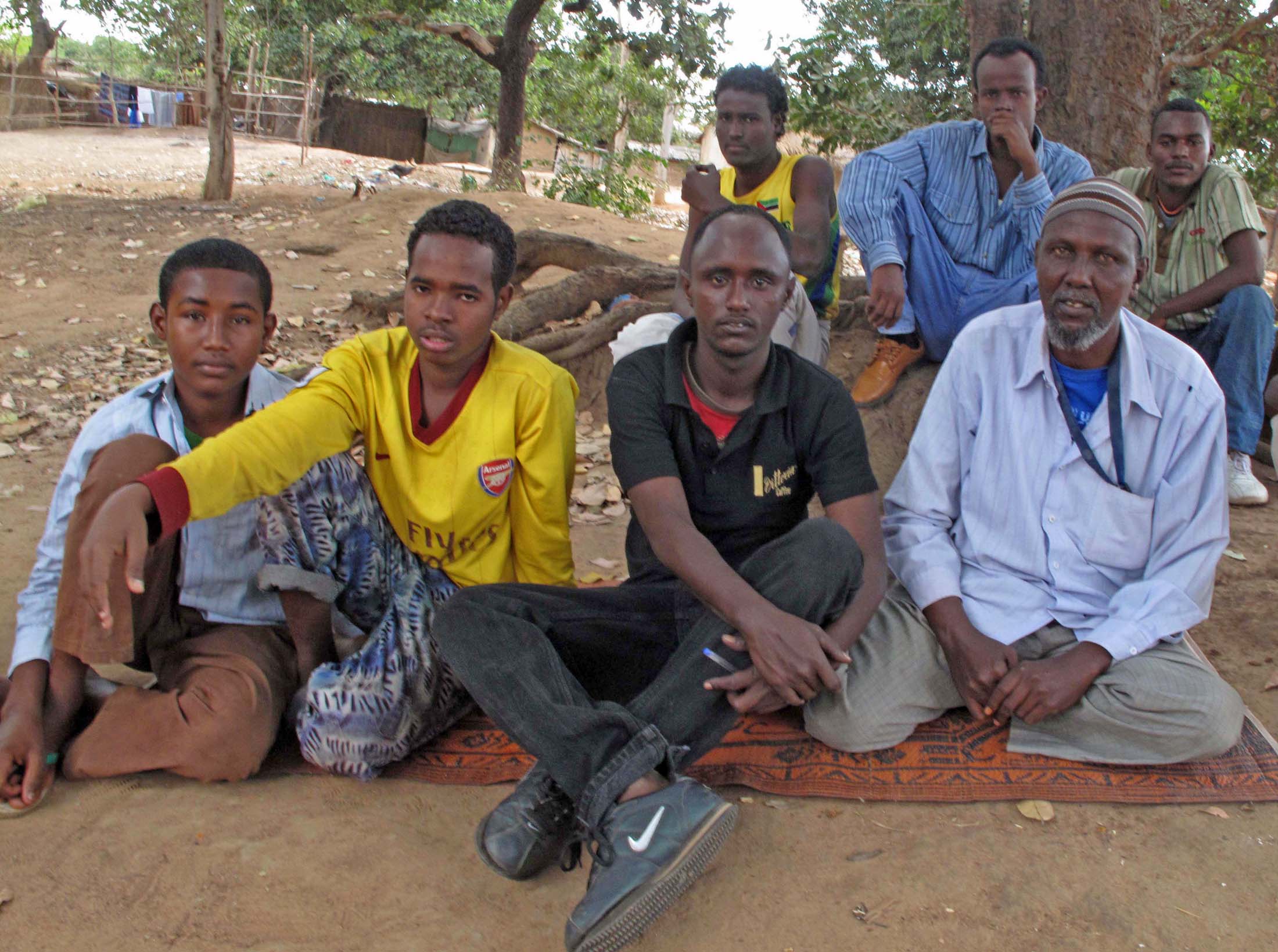“I had a small farm where I was growing things to sell in my shop in Mogadishu. The police wanted to buy from me but Al-Shabab said I was a spy for the government and they would kill me. They took me to their prison where they kept me for 33 days until government forces attacked the place and I escaped. I knew they’d kill me if I didn’t leave the country.
“I left my wife and two children and came to Kismayo and hid there for 12 days. Then I crossed the border into Kenya, but I didn’t go to the camps because Al-Shabab could be there. I went to Mombasa and told the smuggler I had US$300 to get to Mozambique by boat.
“We prefer to come by sea, it’s quicker because there are no road blocks. We know it’s dangerous but with our religion we believe if you die at sea, you go straight to heaven.
“There were two boats containing 500 Somalis and Ethiopians. They dropped us near Mtwara [on Tanzania’s border with Mozambique] and we gave some fishermen clothes and money to take us across the river. Most didn’t know how to swim and two guys drowned in the river. Many people go missing on their way here.
“It took about a week to walk on foot to the border. At Palma we stayed at a camp behind the police station. The police took our mobiles and then we started selling our clothes to survive [until they transported us to Maratane].
“I’m in contact with some of the Somalis who left here and went to South Africa and they tell me that South Africa is now not admitting Somalis. I’m staying here because I’m fighting for resettlement in another a country once I get my refugee status.”
ks/cb
This article was produced by IRIN News while it was part of the United Nations Office for the Coordination of Humanitarian Affairs. Please send queries on copyright or liability to the UN. For more information: https://shop.un.org/rights-permissions




